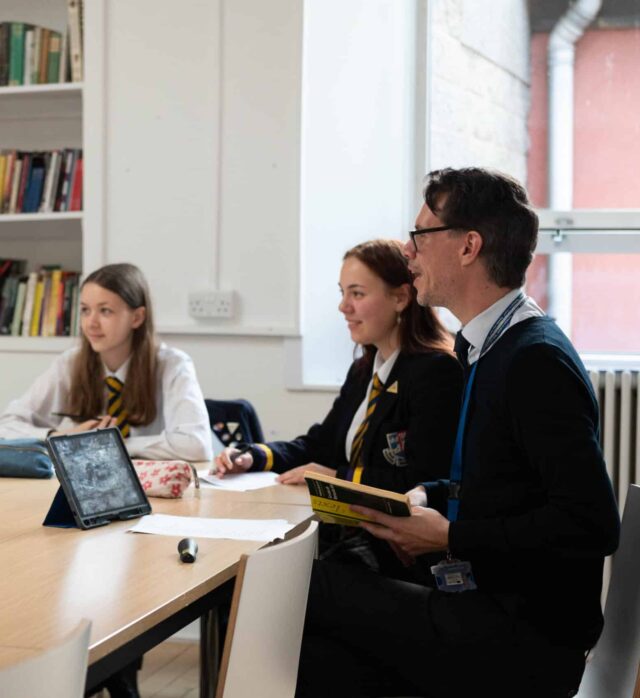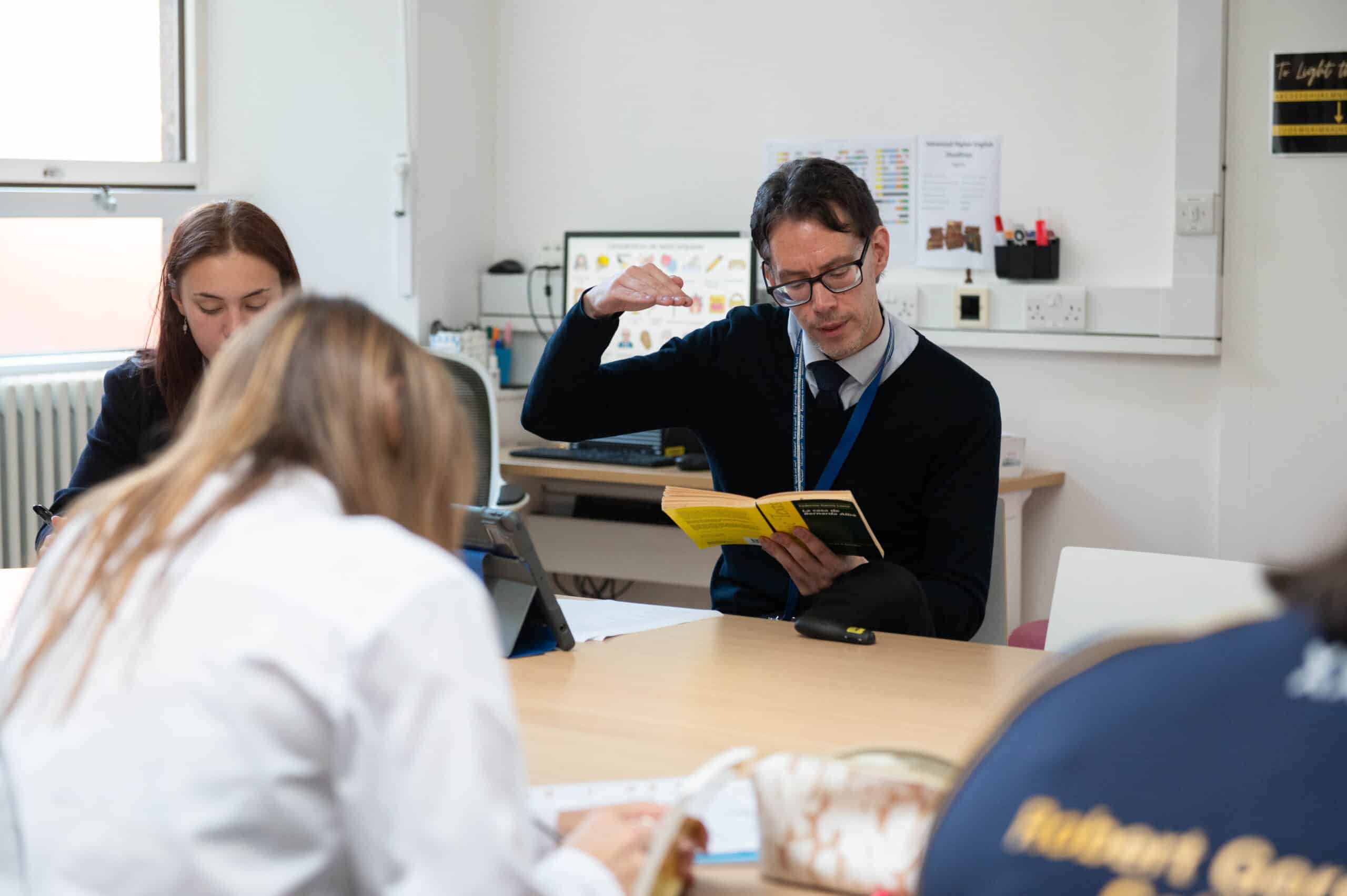Blog
The Power of Language in Today’s Global Landscape

Graeme Campbell
Head of Languages, Robert Gordon’s College
Read the blog
In today’s post-Brexit world, the importance of learning languages has never been clearer. At Robert Gordon’s College, a diverse array of languages, from French, German, Mandarin, and Spanish to Classical Greek and Latin, not only enriches our curriculum but also deepens our understanding of the world’s diversity, multiculturalism, and global connections. We take great pride in offering a range of languages, at a time when many schools are cutting back their offerings to just French and the ever-growing Spanish. As we celebrate the European Day of Languages on Tuesday 26 September, we feel it is vital to acknowledge the immense value of language learning. It’s not just another subject; it’s the key to a future filled with opportunities, deeper understanding, and global collaboration.
Mastering a language equips students with a valuable skill-set, opening doors to international business, diplomacy, and cross-cultural interactions. It gives students a huge advantage in the global job market, no matter what career path they choose. We are very pleased that every year a high number of pupils continue their language studies to university level, either as a languages degree, or as part of a joint degree with other subjects such as law, international relations, engineering or business.
Beyond the practical benefits, learning languages helps develop tolerance and respect for diversity. When students explore other languages, they not only develop language skills, but also gain a deeper understanding of other cultures and perspectives, allowing for the development of empathy and enhancing their ability to engage effectively in our multicultural society. In essence, language learning becomes a powerful tool for connecting with people from different backgrounds and navigating our increasingly diverse world.
It’s fascinating to see how today’s young people effortlessly access multilingual media through streaming platforms, readily embracing subtitles and foreign-language content. Unlike the past when persuading students to watch films in other languages was a challenge, this generation wholeheartedly embraces the global richness of media and new technology. During the pandemic, the use of language learning apps, such as Duolingo, surged as people recognised the importance of acquiring new skills. We have taken steps to harness this enthusiasm from our pupils, awarding Duolingo trophies to those with the longest streaks and highest XP earned during specific periods, sparking enthusiasm and a sense of achievement amongst our students.
I find myself constantly reminding pupils that learning a language is like being proficient in a sport or a musical instrument – there’s no quick reward; it’s a slow-burn skill to master. In a society where a desire for immediate results prevails, language learning reminds us that patience, resilience, and perseverance are the keys to success. We always strive to keep language learning active, with gamification and ludic opportunities, ensuring that it remains enjoyable and engaging for students, even when it becomes tricky.

At Robert Gordon’s College, we’ve spent time researching language teaching methodologies, such as Dr Gianfranco Conti’s Extensive Processing Instruction methodology, which focuses on a communicative approach to language learning. This allows students to assimilate language in chunks, rather than simply memorising vocabulary lists and verb conjugations. It’s a practical and engaging way to enhance language learning and to promote effective communication. Pupils very much enjoy the way in which they are immediately able to talk in a much greater level of detail than they could previously, and feel a much greater sense of satisfaction. In addition, we are fortunate to have native speaker Language Assistants who work with our pupils in small groups, and one-to-one for a single period each week at Advanced Higher level. This not only helps our students develop confidence and fluency but also brings invaluable cultural knowledge, enriching the learning experience.
The UK Government’s sobering estimate of an annual £48 billion economic loss due to deficient language skills highlights the economic importance of language education. In an era of globalisation, those with multilingual abilities are highly desired by businesses looking to expand internationally. Learning languages paves the way for students to contribute to the country’s economic prosperity, preparing them for the challenges of the global marketplace.
It’s vital to remember that a staggering 75% of the global population does not speak English. Equipping our students with multilingualism and the cultural enlightenment that goes along with it, ensures they can engage as effectively as possible with a wide range of international partners.
To conclude, within the Languages Department at Robert Gordon’s, our daily mission is clear: to inspire students to embrace languages, to connect with new cultures, and to become global citizens who celebrate diversity. By equipping our pupils with essential communication skills, fostering intellectual curiosity, and instilling cultural awareness, we prepare them to thrive in an ever-evolving world where language really is the bridge to understanding and making meaningful connections.


